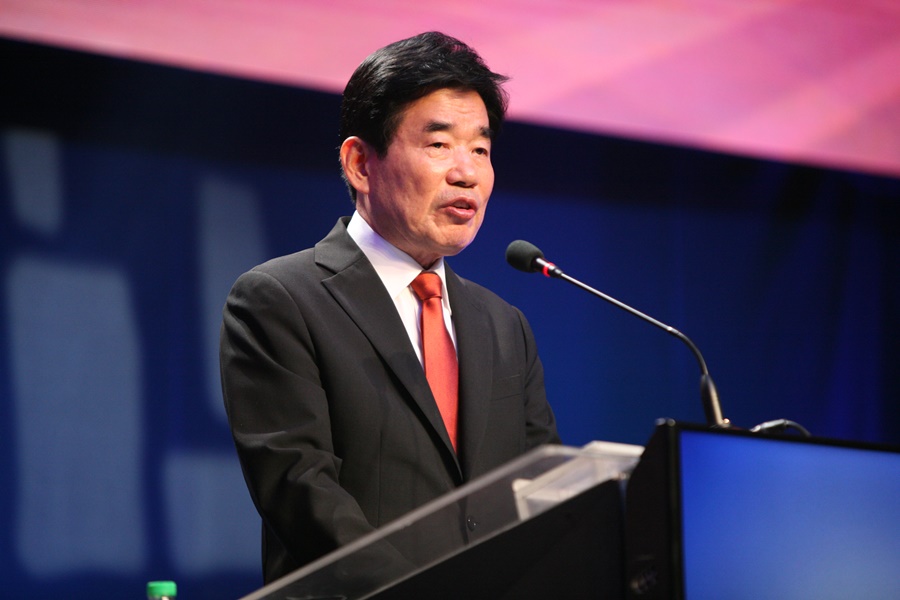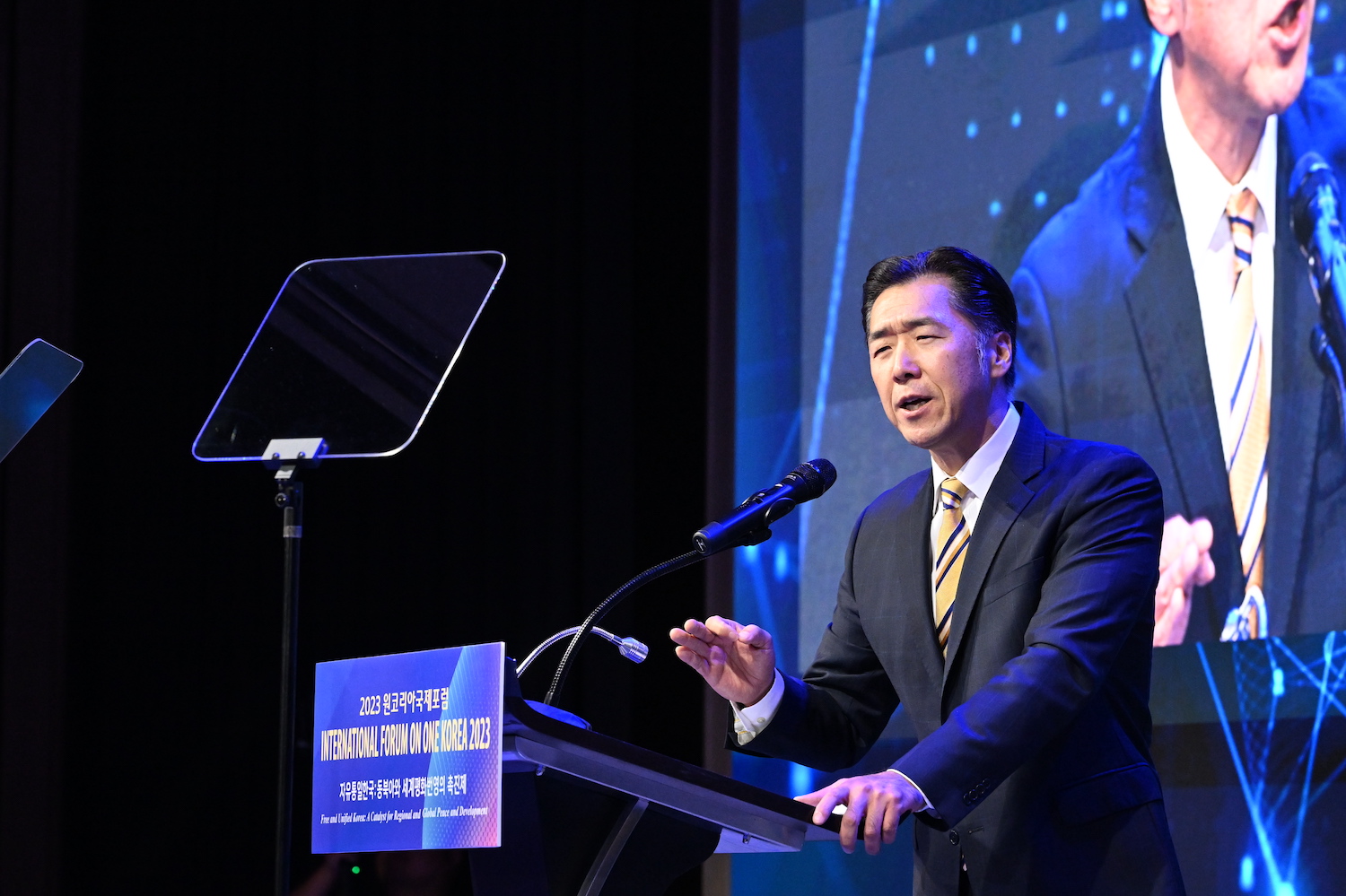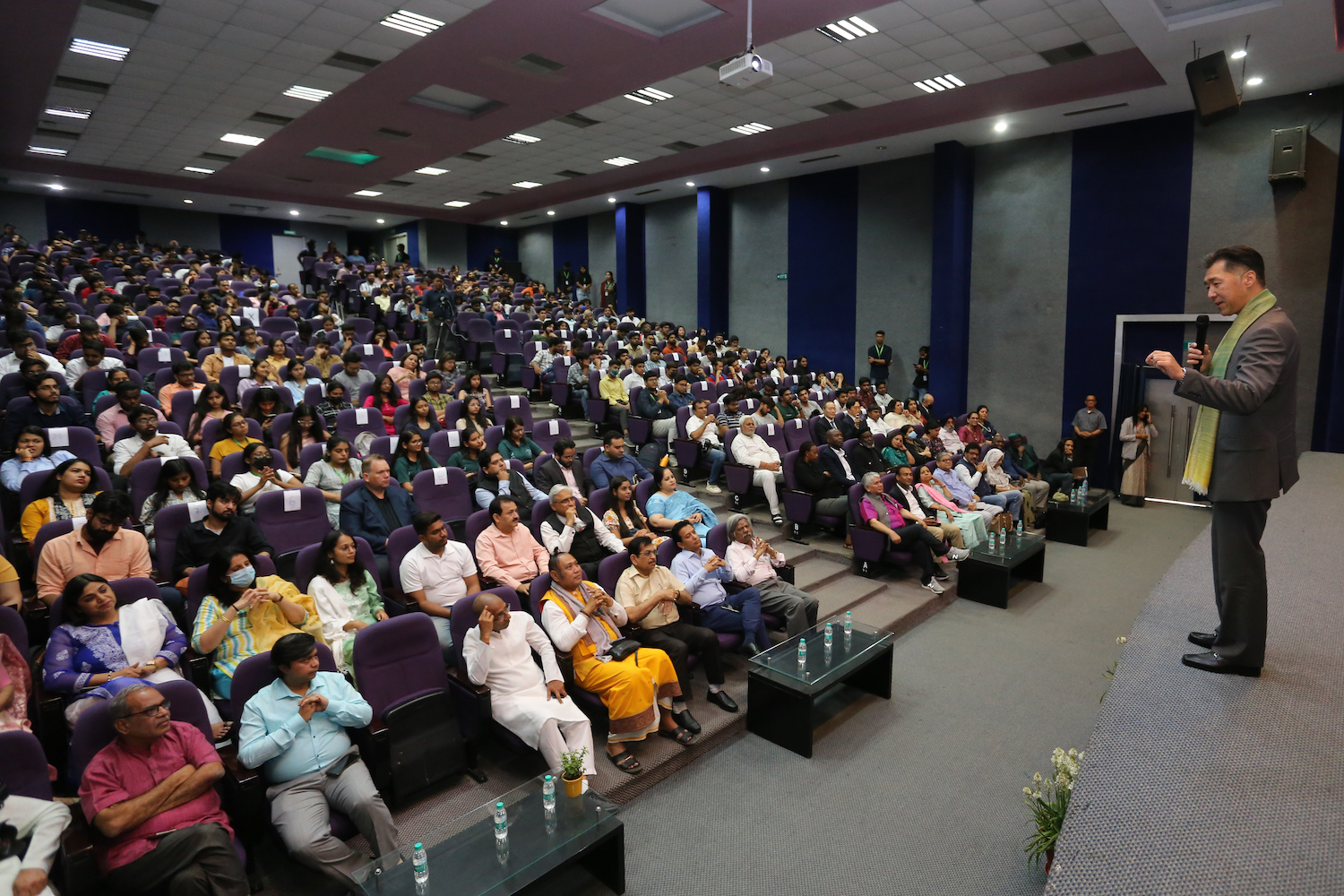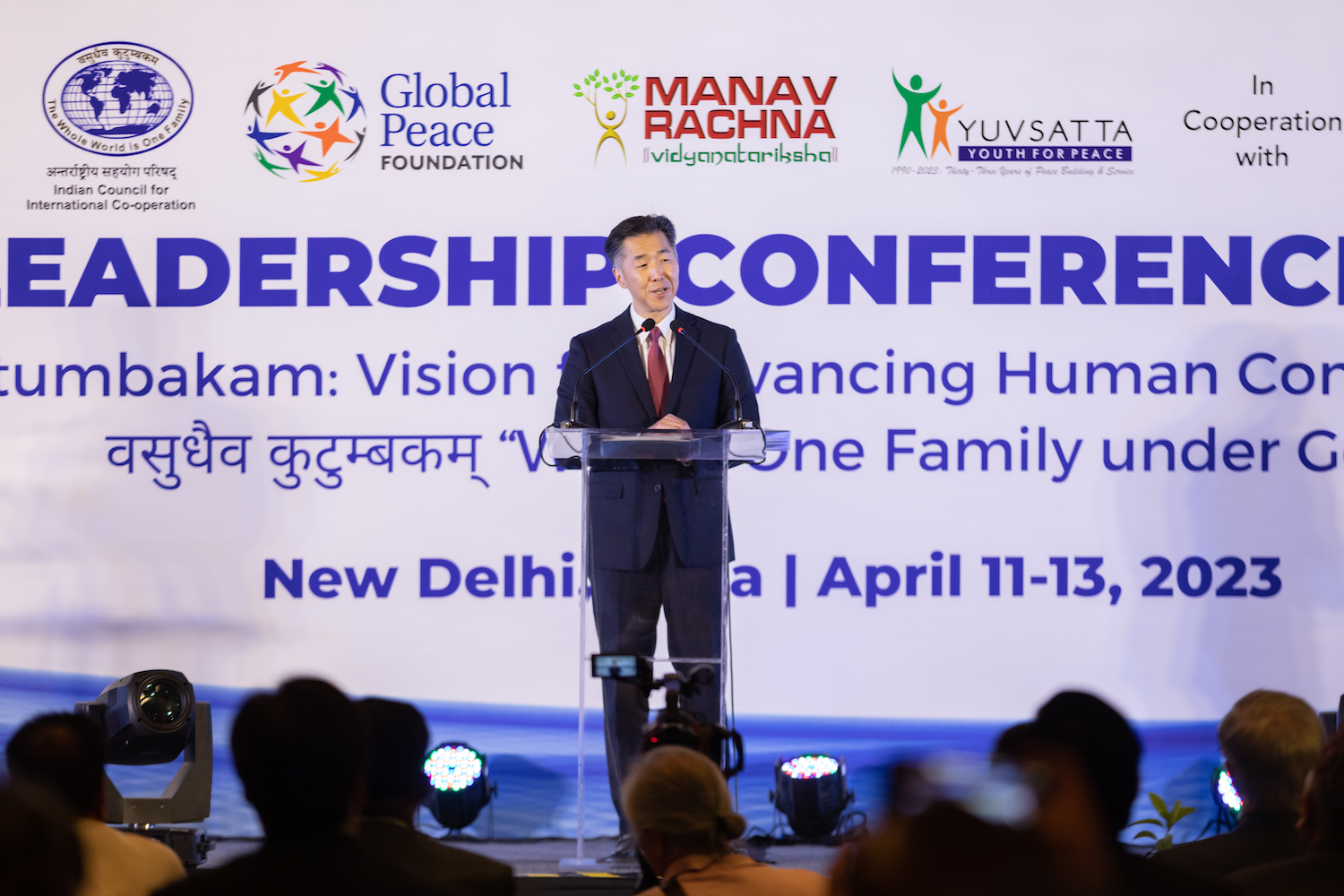1. Greetings

Hon. Jin-Pyo Kim
Honorable Chairman of the Global Peace Foundation, Dr. Hyun Jin Moon, Honorable former President of the Philippines, Gloria Macapagal Arroyo, Honorable former President of Panama, Nicholas Ardito Barletta, Honorable former President of Guatemala, Vinicio Cerezo, Distinguished guests, ladies and gentleman, I am deeply honored to have been asked to give a congratulatory address today at the seventh Global Peace Convention in front of such distinguished guests from all over the world. Having witnessed some of the great work done in the 2015 Seoul Global Peace forum, I am delighted to see you again here in the beautiful city of Manila.
As always, the Global Peace Foundation is actively working to spread peace throughout the world; while continuing to address the major global issues and challenges of today. In particular, I would like to thank Dr. Moon for carrying out the Korean Dream initiatives to promote the peaceful reunification of the divided Korean peninsula.
During the 2015 Seoul Forum, we had very productive and instructive discussions about the peaceful reunification and economic development of the Koreas. I hope this Manila convention will also provide many good opportunities to engage in fruitful discussions on the direction of reform, economic development and social justice, the establishment of peaceful regimes and the free movement of capital.
2. The Philippines and the Asia
Above all, I’d like to thank the government of the Philippines for assisting in the organization of this important convention. The Philippines, with its strategic location, economic growth rate of over 6%, abundant natural resources and outstanding human resources, is a future Asian powerhouse. Current President Duterte’s dynamic leadership in such areas as anti-corruption and structural reform is leading to an increase in both domestic and international confidence.
The Philippines and South Korea have had strong diplomatic ties since they established diplomatic relations in 1949; with the Philippines showing its strong commitment to Korea by sending brave soldiers during the Korean War, under the auspices of UN resolution, to protect peace and freedom in the Korean peninsula. Since then, the two nations have worked together closely in various fields including economic, diplomatic and cultural.
The Asia is the home of 60% of the world’s population and the birthplace of many of its greatest civilizations. Economically, it has become a significant engine that rapidly overcame the economic crisis of the late 1990s, and is significantly contributing to the stability of global trade and finance since the meltdown of 2008.
The Asian Development Bank predicts the Asia’s economic growth rate will reach 5.7% this year, maintaining growth rates from last year. By 2050, Asia will account for more than 50% of the global economy, and it will serve as a growth engine for the global economy as a whole.
I believe the Global Peace Foundation will play an important role in determining the direction of Asia, and the promotion of peace in the region.
3. International cooperation and Korea’s development
Until the early 1960s, South Korea remained one of the poorest countries on Earth. However, South Korea has overcome all kinds of difficulties and now has established itself as a developed country even under the harsh condition of a divided nation. And, the South Korean people will never forget the warmth of international economic cooperation and support that assisted us so greatly in the exemplary development of South Korea’s economic society.
South Korea has received $12.8 billion in aid from the international community, and this aid became the cornerstone for the advanced industrialization in Korea today. Thankfully, in 2010, Korea was able to join the OECD Development Assistance Committee, which makes us proud to be the first and only country to transition from a recipient of aid to a donor country.
Just as no nation achieves greatness without overcoming challenges, South Korea is developing into a country that plays a proactive and positive role in the international community through constant, sometimes turbulent, reform and innovation.
In the midst of the Asian economic crisis of the late 1990s, Korea was brought close to a national bankruptcy. And, as a government official at the time, I had experienced a real and vivid case of how Korea overcame the economic crisis in the most exemplary way with the support from and cooperation with the international community such as ADB, IMF and IBRD.
In this process of overcoming such a crisis, the government and the people realized the structural problems of the Korean economy. And the government aggressively introduced the structural reforms required of our financial system and corporate governance.
As a result of these constant reforms, our economic and social system could be improved one step further. However, Korea still needs more reforms. We are committed to working with all of you and the Global Peace Foundation to bring about further transformation.
4. Towards the peaceful reunification of South and North Korea
One of the greatest threats facing not only the Korean peninsula, but Asia and the world, is the ongoing development of nuclear weapons in North Korea over the last 20 years.
As Korea and the international community continue to persuade Pyongyang to abandon its nuclear program and rejoin the international community; South Korea and the rest of the world will assist in the opening and development of a peaceful North Korean society.
Distinguished guests, ladies and gentlemen, The Korean people will make every effort to ensure that the Korean peninsula become a regional center of peace in Asia, rather than a dangerous hotspot of the regional conflict.
The reunification of the Koreas is not only the Korean dream, but it will be a historical event that contributes to the peace and prosperity of its regional neighbors and the entire world.
As such, the Korean government and its people wish to share our vision of a successful journey of peaceful reunification with the international community.
We know that the Cold War era took root in Europe since 1945 when Germany was divided, but Europe has been moving forward as one Europe after the reunification of a divided Germany. We hope to see the same process happen in Korea after the reunification.
When the North Korean nuclear issue is resolved and a permanent peace regime is established, the Korean peninsula will flourish to become a center of new markets and opportunities for the development in East Asia as well as the rest of the world.
5. Closing Remarks
Distinguished guests, ladies and gentlemen,
I would like to give a special thanks to all of you again, for attending today’s important event hosted by the Global Peace Foundation.
Although our time together is short, I sincerely hope that we will have many deep and meaningful discussions toward national and regional transformation, as well as lead to peaceful economic and social developments, in the spirit of friendship and cooperation.
Furthermore, I sincerely request that you share your wisdom and knowledge and worktogether toward realizing the peaceful reunification of the Korean peninsula, as that is our Korean dream and the world’s dream.
I appreciate your time and attention.
Thank you very much.



